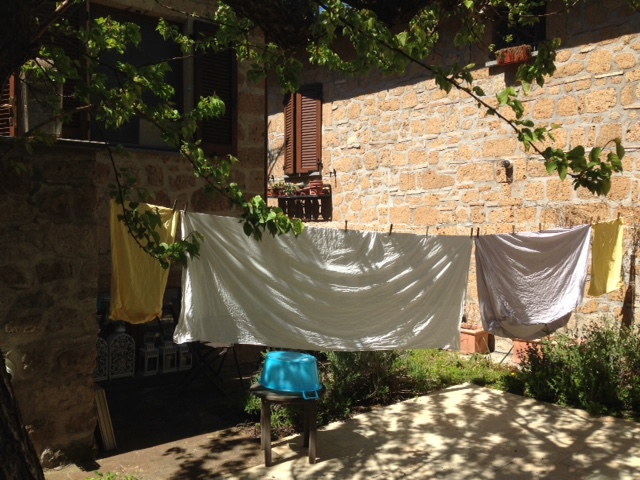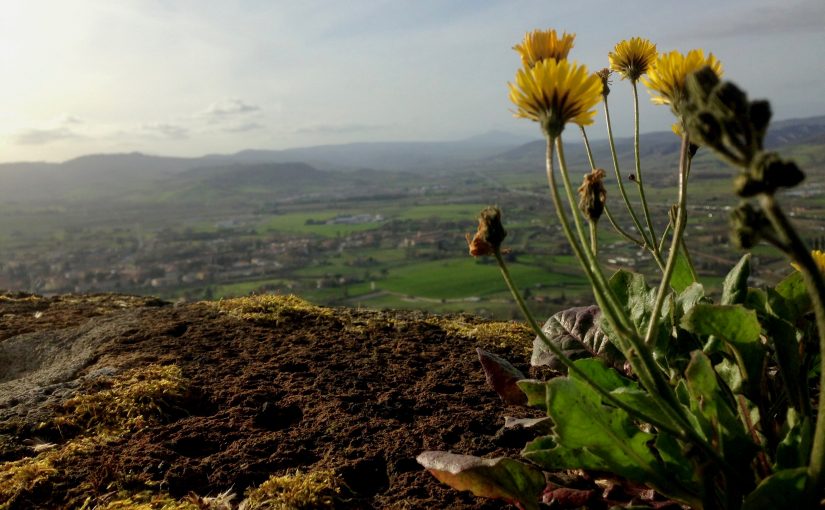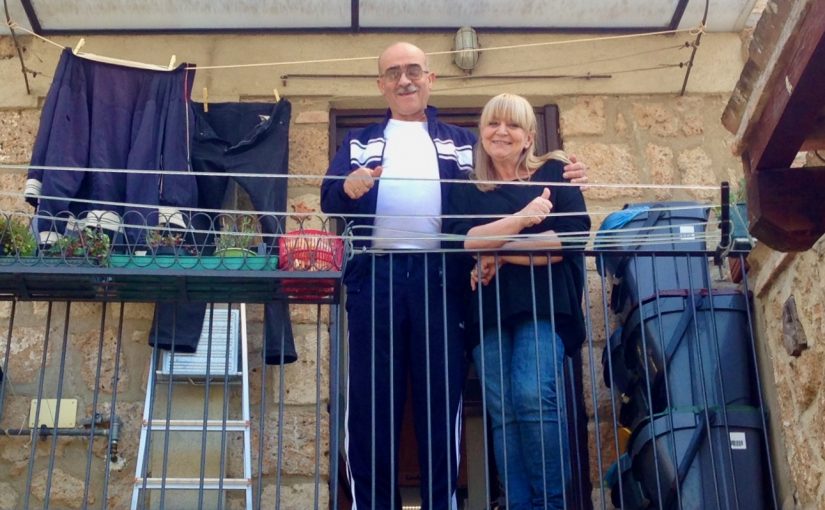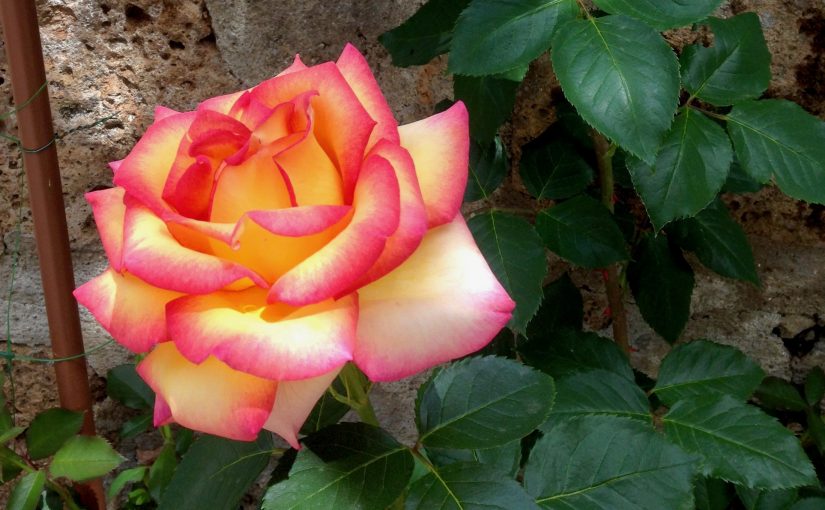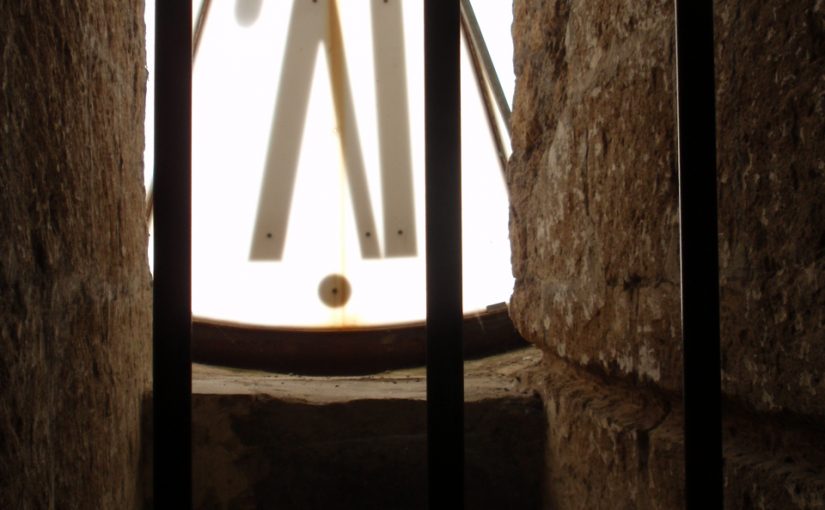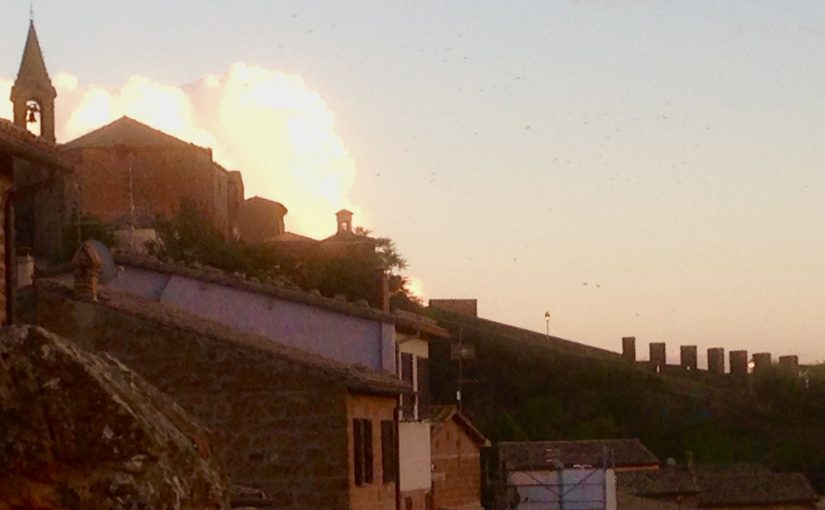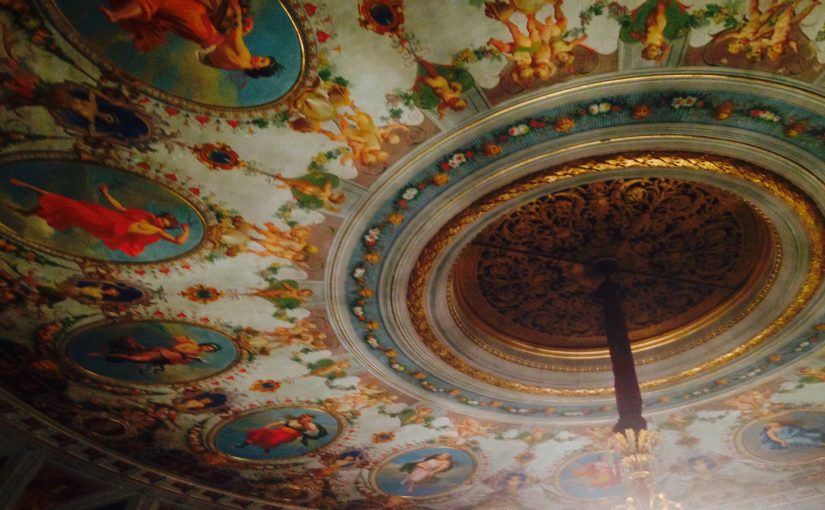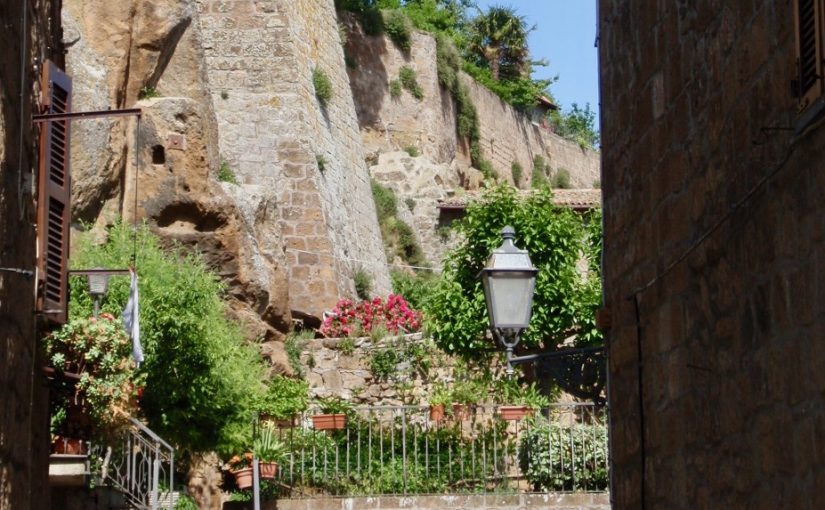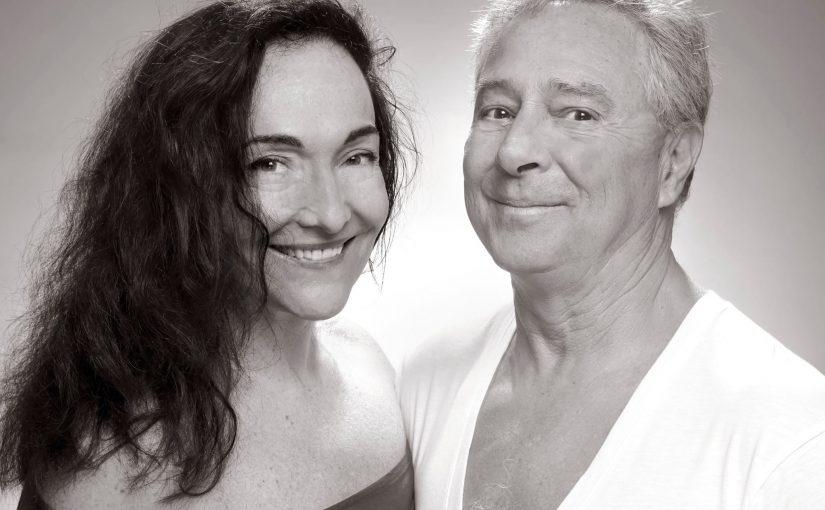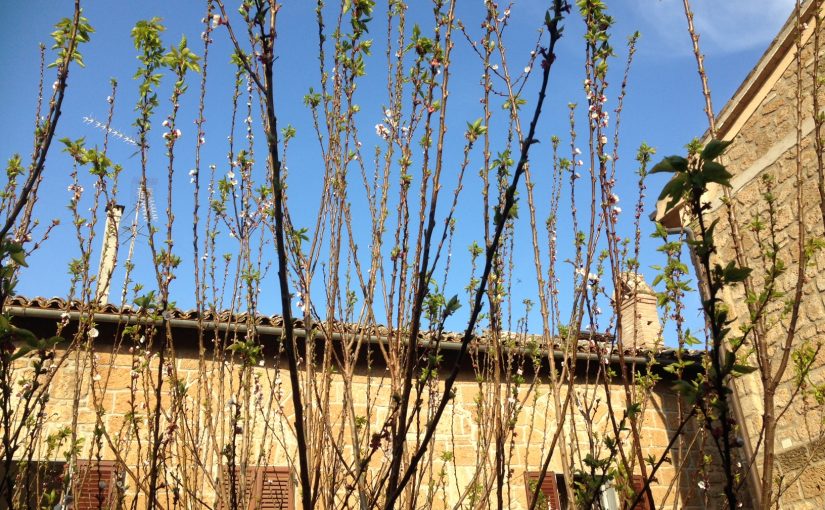Every two weeks, I change sheets. On weeks off, I wash towels. I have each event entered into my calendar so I don’t forget which is due, when, because often Wednesday comes around and I can’t believe only two weeks have passed since the last iteration of this domestic ceremony. I jumped ahead by a day on the sheets, this week. I’ll launder them overnight because tomorrow promises to be a good day for hanging wash in the yard to dry. (In cold weather, sheets festoon railings and racks indoors.)
I look forward to changing sheets exactly as much as I would wrestling an alligator. Or to put it another way, I’ve never wrestled an alligator, but imagine that I would view it at about the same level of enjoyment as changing sheets. I’ve analyzed it, and believe my attitude derives from the fact that the room is small, everything that has to be tucked at the foot of the bed is either way too long or too short, and those facts together conspire to cause me to trip on disheveled bedding on every circuit. Plus, to get the corners of the bottom sheet to fit snugly requires lifting the corresponding corner of the mattress and hoisting it onto my bent knee, not a terribly difficult maneuver, but annoying enough to bolster the alligator metaphor.
The reward for all of this comes at midnight when I slide between air-dried sheets. The crispness of the fabric is a delight. Tomorrow’s batch of sun-dried sheets will be even better. The crispness is of a quality all its own when sheets have been set outdoors on the line.
The experience takes me back to childhood in an instant; to before I went off to college, when my mother would enlist my summer mornings to pin up laundry on the rotating clothesline in the extreme back of our back yard. During the school year she would mysteriously shift laundry day to Saturdays, and all credit to her, I never figured it out until I came home after my first year at the University of Arizona to find the clothesline apparatus dismantled and a brand new electric drier on the back porch. I loved hanging laundry. I guess that wasn’t a genetically inherited trait.
Today, while putting the clean bedclothes in place, I could not believe that it had been two weeks since I and the alligator had engaged. It seemed like the day before yesterday. How can a stretch of the sameness-of-days make an event seem more recent than it is? I would think that a day of such distinction would stand alone, remote as a holy mountain on a vast plain. But no, sheet-changing days pile up like books on a shelf during a mild earthquake.
The same temporal distortion may explain why I lose track of my last shopping day. My mind captures the textured bits and squeezes them all together against the blandness of the days between. Is this how factory workers gauge time? My professional schedule was always variable, even random, from month to month. Perhaps my confusion is that of a fortunate few, of one who has never been subjected to years without significant variation of task.
One thing I can usually keep track of is soup. If not the day each was made, I can describe the order of types, and details about the making. Whenever it was I last shopped, I recall standing at the fruttavendola’s door and authoritatively listing product, size, and number as she collected the items with her gloved hand newly sanitized by alcohol gel. What it all added up to was a mystery at the time. I’ve become used to making soup from what I happen to have on hand, I guess, and am quickly set in my ways.
Today, I began a chunky potato soup and ended up with a red bell pepper purée, more elegantly styled as a peperone vellutata in Italian. It’s devilishly good. After a late lunch I texted Renzo an offer of it for supper. He replied that Patrizia was making a vegetable minestrone. He’d be over within the hour for an exchange.
I love to cook, but grow a bit bored cooking for myself. It may be pure ego, or maybe it’s just a natural human need to share in our innate enjoyment of creation, but having someone else to revel in the mysteries of flavor and texture and nourishment makes a dish come alive. This morning’s soup tasted good when I had it for lunch. After I’d provided a container to my neighbors for supper, I snacked at the stove by dipping bread into the pot, and the flavor had bloomed spectacularly. Some of that is the natural ripening of soup, but I have a feeling that anticipating that friends would, in several hours, discover similar flavors at their own table as I was savoring over the pot, had a hand in improving its flavor, too. The wonders of the unseen.
Therefore, for your gustatory delight… Peperone Vellutata
- two large russet potatoes
- two medium large yellow onions
- one large red bell pepper
- six or eight leaves of fresh sage
- 2 tablespoons olive oil
- 1 liter vegetable broth
- 1 cube vegetable bouillon
- 100 ml heavy cream
- ¾ cup parmesano regiano, grated
- fresh ground pepper
- halve then rough slice the onions
- place onions in half the oil, heated, stir
- pour remaining oil over onions, stir, cover and heat 10-15 minutes over a low flame, stirring occasionally
- wash and cube the potatoes
- wash and rough slice the pepper
- once the onions are soft, add potato, pepper, sage, broth, and bouillon – simmer for 20 minutes, covered
- once potatoes and peppers are easily pierced with a fork, blend thoroughly using a stick blender
- blend in the grated cheese
- stir in the cream
- pepper to taste and stir
- let sit off flame for at least 10 minutes
- serve warm (not hot)
